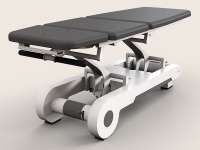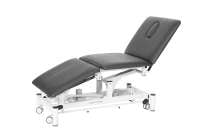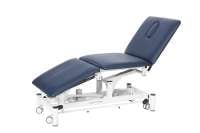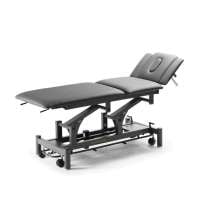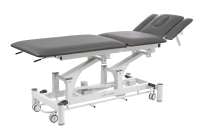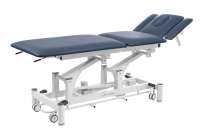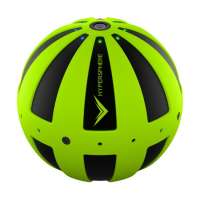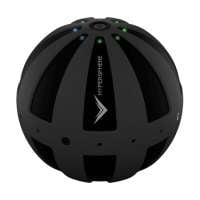
Sometimes our own bodies throw a wrench in the works. A sudden paralysis, tremors in the legs - according to the WHO, more than one billion people worldwide suffer from a neurological disease. At the forefront are stroke, Parkinson's, and epilepsy. These and other diseases often severely impair the lives of those affected and lead to a significant reduction in quality of life.
As a physiotherapist, you play an important role in the treatment of these conditions. But how can you best help your patients? Which therapy methods are most effective? To answer these questions, it is essential to stay up to date with the latest research.
In this blog post, we would like to introduce you to the latest research findings on the effectiveness of physiotherapy in the treatment of neurological conditions. We hope that this article will provide you with valuable insights and help you support your patients as best as possible.
Learn more about:
-
How neurological conditions arise
-
How physiotherapy can help
-
The latest research findings
-
Challenges and limitations
1. How Do Neurological Conditions Arise?
Our brain is the control center of our body. It coordinates our movements, thoughts, emotions, and sensory perceptions. However, sometimes disturbances can occur in the system.
Neurological conditions can arise from a variety of factors such as genetics, age, environment, and lifestyle. Connections between nerve cells change or die, leading to symptoms such as paralysis, tremors, or memory loss.
An example of this is Parkinson's disease, where certain nerve cells in the brain die and dopamine, an important neurotransmitter, is no longer produced sufficiently. Stroke can also occur due to a sudden failure of blood supply to the brain, causing severe damage.
2. How Can Physiotherapy Help?
The diagnosis of a neurological condition can turn life upside down. Suddenly, everyday tasks become a challenge and movements that were once taken for granted can be difficult or impossible. But there is hope. Physiotherapy helps to alleviate symptoms and improve mobility.
Through special exercises and techniques, physiotherapeutic measures can help improve the mobility, strength, and coordination of patients while reducing pain and stiffness. Treatment can also help improve balance and stability and reduce the risk of falls.
What types of physiotherapy are used for neurological conditions?
There are various types of physiotherapy that can be used in neurological conditions. Some of the most common include:
-
Bobath Therapy: Bobath therapy is a specialized form of physiotherapy that focuses on treating patients with neurological conditions. The goal of the therapy is to improve balance, movement, and coordination.
-
Proprioceptive Neuromuscular Facilitation (PNF): PNF is a technique that is based on stimulating muscles and nerves through specific exercises and movements. The technique can be used to improve movement control and balance in patients with neurological conditions such as stroke, Parkinson's, or multiple sclerosis.
-
Functional Electrical Stimulation (FES): FES uses electrical stimulation to generate muscle contractions and support movement. The technique can be used to restore muscle strength and improve mobility in patients with paralysis and other neurological conditions.
-
Sensory Integration Therapy: Sensory Integration Therapy aims to improve the processing of sensory information in the brain. The therapy can help improve coordination and balance in patients with neurological conditions.
-
Gait analysis and training: Gait analysis and training is a technique in which the walking of patients with neurological conditions is analyzed and improved. The goal is to achieve better balance and coordination as well as higher walking speed and efficiency.

3. The Latest Research Findings
The therapy of neurological conditions through physiotherapy is currently being intensively investigated. The available results show promising effects, indicating that physiotherapy can play an important role in improving the quality of life of patients with neurological conditions.
Specifically, physiotherapy has been shown to achieve significant improvements in physical function in conditions such as stroke, Parkinson's disease, and multiple sclerosis. Various methods are used, such as movement exercises that improve muscle strength and balance, as well as specific exercises that promote mobility and coordination.
Furthermore, it has been shown that technologies such as robotics and virtual reality can have a positive impact on the effectiveness of physiotherapy.
We have summarized some interesting studies for you here:
Parkinson's Disease
A systematic review and meta-analysis by Mehrholz et al. in 2018 examined the effectiveness of physiotherapy in patients with Parkinson's disease. The researchers analyzed a total of 47 randomized controlled trials with more than 3000 participants. They found that physiotherapy can significantly improve mobility, balance, gait, and quality of life in Parkinson's patients. In particular, better walking speed and longer walking distance could be achieved through physiotherapy. Additionally, balance improved and the risk of falls was reduced. The results of the meta-analysis also showed that the effectiveness of physiotherapy was greater the longer and more intensive the treatment was.
Multiple Sclerosis
In 2021, a research team at the University of Cologne conducted a study examining the effectiveness of physiotherapy in patients with multiple sclerosis. The patients performed exercises specifically tailored to their individual physical limitations, including leg strength exercises, balance exercises, and coordination exercises. After eight weeks of training, the patients showed significant improvements in their walking ability and quality of life.
The study confirms the importance of individually tailored physiotherapy for patients with multiple sclerosis and demonstrates that targeted exercises can improve physical function and quality of life.
Stroke
A study published in the Journal of NeuroEngineering and Rehabilitation examined the use of a robot-assisted exoskeleton in combination with virtual reality for the treatment of stroke patients. The study involved 60 participants who were randomly assigned to either the robot-assisted exoskeleton group or a control group receiving standard rehabilitation.
Participants in the robot-assisted exoskeleton group underwent a six-week rehabilitation in which they performed specific movement exercises supported by the exoskeleton while exploring a virtual reality environment. The control group received standard rehabilitation without the use of robotics and virtual reality.
The results showed that participants in the robot-assisted exoskeleton group demonstrated significantly improved motor function and walking ability compared to the control group. Thus, the study suggests that the combination of robotics and virtual reality may be a promising method for the rehabilitation of stroke patients.
Epilepsy
There is limited research on the use of robotics and virtual reality for the treatment of epilepsy. However, a recent systematic review from 2021 examined the use of virtual reality as a supplement to standard treatment for epilepsy and found promising results.
The study identified eight randomized controlled trials that examined the effectiveness of virtual reality in the treatment of epilepsy. Overall, these studies showed that the use of virtual reality as a supplement to standard treatment for epilepsy can significantly reduce the frequency and intensity of seizures.
"Some of the virtual reality technologies examined were, for example, immersive virtual environments that aim to reduce stress and anxiety, as well as interactive games and simulations used to improve cognitive abilities. Although further research is needed in this area, these results suggest that virtual reality could be a promising approach as a supplement to standard epilepsy treatment.

4. Challenges and Limits
As you can see, physiotherapy is an important tool in the treatment of neurological disorders. However, science is far from finished with this topic. For this article, we spoke with Leipzig neurologist Jens Schäfer, who conducts research himself on the effectiveness of physiotherapy. In an interview, he shared his knowledge with us.
Mr. Schäfer, why do you think there are sometimes only a few studies that examine the effectiveness of physiotherapy in neurological disorders?
Jens Schäfer: "The effectiveness of physiotherapy in neurological disorders is not yet sufficiently researched. One possible reason for this is that such studies are often very complex and expensive, and therefore only limited financial resources are available. The difficulty in recruiting suitable patients for studies can also play a role. In addition, it is often difficult to develop standardized measurement methods that objectively capture patients' progress."
How can physiotherapists use and implement research findings?
Jens Schäfer: "Through the individual adaptation of therapy plans, physiotherapists can recommend specific exercises and movements that are tailored to the specific deficits and limitations of the patient. It is also advisable to familiarize oneself with the latest technologies. Robots and exoskeletons are a valuable addition to practice and can support patients in their motor rehabilitation."
Would you also recommend interdisciplinary collaboration?
Jens Schäfer: "Definitely! I myself work with physiotherapists, but occupational and speech therapists can also support the treatment. By collaborating with other professionals, physiotherapists ensure that the patient is best cared for and treated holistically."
What are the limits of physiotherapy?
Jens Schäfer: "Physiotherapy plays an important role in the treatment of neurological disorders and is often very helpful. However, there are also limits that must be observed. In cases of severe neurological disorders, such as advanced stages of multiple sclerosis or severe head injuries, physiotherapy may not be sufficient to adequately support the patient. Even if the damage is very pronounced and the affected brain area is irreversibly damaged, physiotherapy can only provide limited help. Therefore, physiotherapy alone is not a suitable treatment approach and should instead be considered as a valuable addition."
Conclusion
The effectiveness of physiotherapy in the treatment of neurological disorders is a broad field that still raises many questions. However, studies already conducted promise a positive outlook for the future.
As a physiotherapist, you have many opportunities to use the latest research findings to support your patients in your practice, whether through special exercises, robotics, or virtual reality. By collaborating with experts in neurology, occupational therapy, and speech therapy, new ways can be developed to alleviate the symptoms of multiple sclerosis, Parkinson's disease, and other neurological disorders.
How did you like the article?
With your feedback, we can improve our content.
❤️ Very interesting! - ☺️ Okay. - ☹️ Not interesting.


